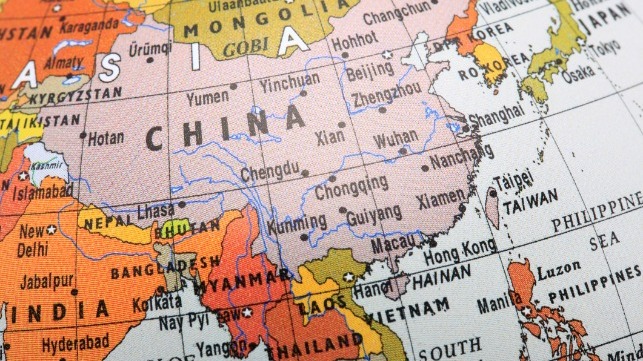In the Crossfire – The U.S., China and Taiwan

Last month, a senior Chinese minister warned Washington to abide by the “one China” principle and immediately cease all cooperation with Taiwan to avoid further damaging China-U.S. relations and peace and stability in the Taiwan Strait.
Meanwhile, the Biden Administration has sold Taiwan $750 million in self-propelled howitzer systems, including GPS-guided munitions. Beijing denounced the sale and has not ruled out the use of force to unify Taiwan and China.
Since the Carter Administration, the US has sold billions of dollars in strategic arms to Taiwan, meaning the island nation could defend against Chinese aggression in the skies and on the seas off its coastline.
However, China asserts that Taiwan is its “sacred territory” and believes that US arms sales interfere with its internal affairs. Last year, Taiwanese President Tsai Ing-wen told the BBC that there is no need to declare independence because Taiwan is already an independent country.
The Standoff
After World War Two and years of civil war between the Communist Party of China (CPC) and the Kuomintang Party (KMT), led by General Chiang Kai-sek, the CPC established the People’s Republic of China in Beijing. The KMT Republic of China (ROC) operated its government from various cities in China before being expelled from the mainland by the CPC, and it settled in Taipei, Taiwan.
In 1979, the US ended official ties with the ROC and switched its diplomatic recognition to the People’s Republic of China on the mainland. Relations between China and Taiwan began improving during the 1980s. Beijing offered Taiwan “one country, two systems,” under which Taiwan would have autonomy if it accepted Chinese reunification, but Taiwan rejected the offer.
After that, Beijing insisted that the ROC was an illegitimate government, and negotiations between the two could not happen. In a recent survey of Taiwanese, only three percent consider themselves as solely Chinese. Over 32 percent say there are both Taiwanese and Chinese, and 65 percent feel they are only Taiwanese.
In the Crossfire
In 1978, the US recognized mainland China to form a united front with Japan and Western Europe against the Soviets. This left the Taiwanese outside the political ecosystem, and they mobilized to lobby Congress against the communist regime in Beijing, citing its human rights violations.
Senator Barry Goldwater led the charge against the Carter Administration's nullification of the Sino-American Mutual Defense Treaty, which was signed with the ROC in 1954. Goldwater sued, and the case went to the Supreme Court in 1978. The case was ultimately dismissed, but the leverage to pass the Taiwan Relations Act - an American security agreement for the island - moved swiftly through both houses. President Carter signed the Act to maintain commercial, cultural, and other relations through unofficial channels, without formal diplomatic representation.
The Act provides de facto relations with Taiwan, requiring that it will be treated the same as foreign countries, nations, states, and governments as a sub-sovereign foreign state.
While Beijing has been saber-rattling for years, the 2016 election of Tsai Ing-wen has essentially put an end to building better economic ties with the mainland, which has continued to intensify tensions between Taiwan and China.
The Chinese navy is now armed with hypersonic cruise missiles and there are daily sorties near Taiwan’s airspace, which have become more belligerent. There is also a growing ring of Chinese-occupied islands in the South China Sea, allowing China to control the airspace far beyond Taiwan.
Chinese President Xi Jinping has already eliminated liberty in Hong Kong and could very well seek to reclaim the island of Taiwan. All eyes have been on the messy US withdrawal in Afghanistan as the Taiwanese people's pro-independence sentiment is at an all time high. Taiwan’s President Tsai says they will have to become stronger and more determined to protect themselves.
